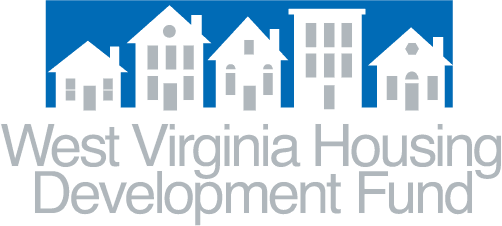Contract Renewals & Rent Increases
The WVHDF Section 8 Department processes renewals and/or rent adjustments for all contracts in the PBCA portfolio annually. Depending on the Owner/Agent’s request and selection of options available to them, these processes may also include the review and approval of proposed rents, utility analysis, Budget-Based Rent Increases (BBRI) and/or Rent Comparability Studies (RCS).
***Please utilize scroll down for more information on Contract Renewals, Rent Increases, Utility Analysis and Rent Comparability Studies***
Contract Renewals
Expiring Housing Assistance Payment contracts may be renewed up to 20 years. The owner may choose one of six options. Owners must read and understand the HUD Section 8 Renewal Policy Guidebook (published March 2023) before attempting to renew an expiring HAP contract to ensure that their actions represent the most appropriate and applicable choice for their property. Once the complete contract renewal request package is received from the Owner/Agent, the Contract Administrator will review and process.
Notes
- Requests submitted without the required forms and supporting documentation will not be processed until ALL have been received.
- All requests must be submitted 120 calendar days prior to the property’s contract anniversary date.
Helpful Links
- Section 8 Renewal Policy Guide (HUD website)
- Section 8 Renewal Policy Guide (published March 2023)
- HUDClips
- Contract Renewal Request Form (HUD-9624)
- Worksheets for Mark-Up-To-Market (Option One) Eligibility
Section 8 Contract Renewal Documents
Rent Increases
Property contract rents are adjusted annually. The Owner/Agent may choose to utilize an Operating Cost Adjustment Factor (OCAF), which is based on an adjustment factor calculated and published annually by HUD or a Budget-Based Rent Adjustment, which is based on property-specific projected operating costs. Once the complete package is received from the Owner/Agent, the request is reviewed and the rent adjustment is processed.
Certain contract types require submission of a Rent Comparability Study (RCS) and are not eligible for an OCAF adjustment. This will be identified in the property’s contract.
AUTO OCAF – Approximately 150 calendar days prior to the contract anniversary date, properties eligible for an Auto OCAF rent adjustment receive a packet from the WVHDF via email that includes a letter indicating the new OCAF increased rents and a Utility Allowance Analysis Owner Certification, if applicable. The Owner/Agent should read the Auto OCAF Acceptance Letter carefully to confirm all information, including debt service, before signing. If something is not correct, note on the letter, provide supporting documentation, and return all information to the WVHDF.
BUDGET BASED (BB) – The budget-based rent adjustment requirements can be found in Chapter 7 of handbook HUD 4350.1. All required forms, including a Budget Worksheet, and supporting documentation for changes must be submitted with the owner’s written request at least 120 calendar days prior to the contract anniversary date.
Helpful Links
- Section 8 Renewal Policy Guide (HUD website)
- Section 8 Renewal Policy Guide (published March 2023)
- HUDClips
- Operating Cost Adjustment Factors (OCAFs) FY24
- Operating Cost Adjustment Factors (OCAFs) FY 2023
Section 8 Rent Increase Documents
Utility Analysis
All owners of properties that have a utility allowance must adhere to the Methodology for Completing a Multifamily Housing Utility Analysis (HUD Notice H-2015-4) issued on June 22, 2015.
Contract renewals and rent adjustment requests for properties with utilities paid by the residents must be accompanied by a utility allowance analysis. A new utility analysis is requested every third year for each bedroom size, which is determined by using a baseline utility analysis. For the two years after the baseline is established, utility allowance amounts for each bedroom size at the property can be adjusted by a state-specific Utility Allowance Factor (UAF) provided by HUD (in lieu of another baseline utility analysis). For properties with more than one utility type paid by the residents, an analysis must be submitted for each utility type (i.e. electric and gas).
When the utility analysis documentation supports a decrease to the utility allowance(s), the owner must adhere to the posting requirements set forth in 24 CFR 245.410 Notice to Tenants (see below).
Helpful Links
Section 8 Utility Analysis
Rent Comparability Study (RCS)
If you are required to submit an RCS with either your contract renewal or rent increase request, remember you will need to contract with a state-certified general appraiser to prepare one.
Since renewal requests are due to the WVHDF at least 120 calendar days before contract anniversary date, we recommend that you begin looking for an appraiser at least 7 months in advance. Guidance on how an RCS is prepared is provided in Chapter 9 of the Section 8 Renewal Policy Guidebook. Section 8 Renewal Policy Guidebook.
Tips for Submission
- There are two alternatives to submitting an RCS, which are detailed in Sections 9-5 and 9-6 of the Renewal Guide. Please review them as they may save you the cost of an RCS.
- Upon receipt of the RCS from your appraiser, please take the time to review the RCS before submitting to the WVHDF. Use the Owner’s Checklist for RCS Submission (see below) to get a general idea as to whether your appraiser prepared the RCS in accordance with the requirements.
- Be sure to review the rents for appropriateness. These rents will set the ceiling for maximum allowable rents for the next five years (adjusted by the OCAF in years 2-5).
- An owner cover letter is required (a sample RCS Cover Letter is below) and all materials are to be submitted in electronic copy reports in the same order as shown in the owner’s checklist (below).
Helpful Links Section 8 Renewal Policy Guidebook

